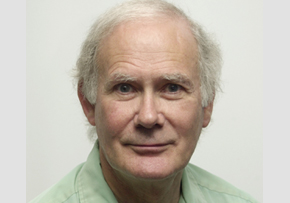David Bradley
David Bradley is Ross Professor of Tropical Hygiene Emeritus at the London School of Hygiene and Tropical Medicine (LSHTM). He is a physician, communicable disease epidemiologist and zoologist. After studies at Cambridge and London he lived and worked in Tanzania and Uganda for ten years and has continued to carry out research there, also in India, Bangladesh, Philippines, Sierra Leone, Kenya, and the United Kingdom as well as making shorter working visits to many other countries. After initial work on community pathogenesis, epidemiology and the public health importance of schistosomiasis he worked on domestic water supply and health in East Africa, on Mycobacterium ulcerans, and the theoretical basis of tropical public health. He devised the now generally adopted functional classification of water-related diseases.
He returned to the United Kingdom to analyse the genetic control of resistance to leishmaniasis at Oxford where he discovered the Lsh gene, and developed an epidemiological model of schistosomiasis haematobium. From 1974 he was Professor of Tropical Hygiene at the LSHTM for 30 years and Director of The Ross Institute, which became a highly interdisciplinary department, extending from molecular biology to social anthropology, applied to problems of tropical health. It particularly developed thinking on water and sanitation, and on malaria control He became increasingly involved in malaria epidemiology as co-director of the Malaria Reference Laboratory and head of a DFID research group on applied aspects of tropical diseases, especially malaria. Its work focused on comprehensive analyses of complex malaria problems requiring multidisciplinary studies, and following through from efficacy trials to sustainable implementation. Urban malaria in Asia, insecticide-treated mosquito net programmes in East Africa, and the prediction and management of malaria epidemics due to global and local environmental changes have been studied.
He has advised the World Health Organization, DFID, the World Bank, and ICDDR,B on public health and research policy. He was President of the Royal Society of Tropical Medicine and Hygiene, has an Honorary DSc from the University of Leicester and was recently made an Honorary Fellow of the LSHTM. He has received the Chalmers and Macdonald medals of the Royal Society of Tropical Medicine and Hygiene and the Harben Gold Medal of the Royal Institute of Public Health. Since retiring, he has worked with Ugandan colleagues on the disease problems of settling nomadic pastoralists and the resulting environmental, water and health changes and he has returned to his fascination with the role of water bodies in disease and with landscape epidemiology, as well as working on the historical epidemiology of India, on revising the classification of water-related diseases, on the conceptualization of transdisciplinary public health issues and on imported malaria.

